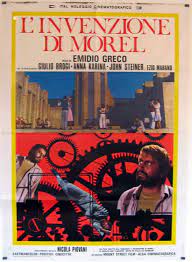L’invenzione di Morel (1974) Morel’s Invention.
IMDb meta-data is a runtime of 1 hour and 46 minutes, rated 6.7 by 419 cinematizens.
Genre: Sy Fy.
DNA: Italy.
Verdict: an original.
Tagline: Seeing is not believing.
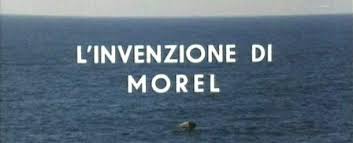
A fugitive castaway washes up on a rocky Mediterranean island that seems uninhabited. Exploring the island, he is surprised to discover an elaborate art deco hotel in the mode of Italian futurism of the later 1920s, perfectly intact yet empty.
Driven by the search for drinking water he turns on all the Krill machinery he finds in the hotel basement to be later shocked to see people on the patio and elsewhere. His reaction is fear, and he hides and watches them. They repeat the same actions and words again and again. Strange. Moreover, they dance in the rain without getting wet. Stranger still, indeed, and this deepens his fear. Later when he stumbles across a couple of them by accident they ignore him, as though he were an invisible ghost. Although it turns out he is not the ghost.
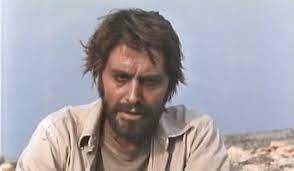
This is a brilliant take on Jules Verne’s The Island of Dr Moreau (which is usually an excuse for a freak show). Morel’s invention has captured a perfect week in a perfect place. (Psst its on Malta.) The cinematography is likewise brilliant. It is so gorgeous to look at that it upstages L’année dernière à Marienbad (1961) and its baroque hotel.
SPOILER alert.
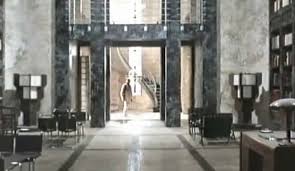
The people that Fugitive sees are long dead, and these are holographic projections we might say today, but in 1974 that concept was not available to the screenwriter updating a 1940 novel. These beautiful people in their gorgeous 1920s fashions, against blue sea and cerulean sky repeat their week again and again like a film on a loop. In time the fugitive realises some of this and, having no alternative, holographs himself into a kind of eternal life, or eternal purgatory.
Is it a commentary on the living death of movie actors, who die, and yet whose images continue to repeat their film performances? Maybe. As a clue to the cinema references, Morel’s muse is Anna Karina who a decade earlier was the proclaimed muse of Jean Luc Godard. And, yes, her name is Faustina. Hint, hint. Or, given the novel’s date, is it a comment on the Italian fascist proclivity to send dissidents into exile, admonishing the locals to shun them, e.g., Carlo Levi, Christ Stopped at Eboli (1945).
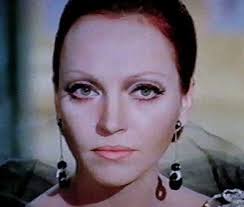
It is a daring production that has no dialogue for the first 30+ minutes, and very little after that, and much of it is repetition. Yet it works with neither the offensive pretension nor defensive arrogance of a Tarkovsky film. The scenery, the sound of the water and wind, and the fugitive’s desperation and then realisation are all done without a word, nonetheless achieve impact. The fugitive conveys a great deal with hardly a word, for talking to ghosts is pointless.
Belief has to be suspended a lot, because Fugitive never eats, though he seeks water once, never food. Moreover, even in the rain storm he never takes shelter in some part of the vast hotel. Hotel staff are seen once but never explained.These are nits that drive some reviewers to prolix expostulations. Moreover he never tries the obvious, a touch.

